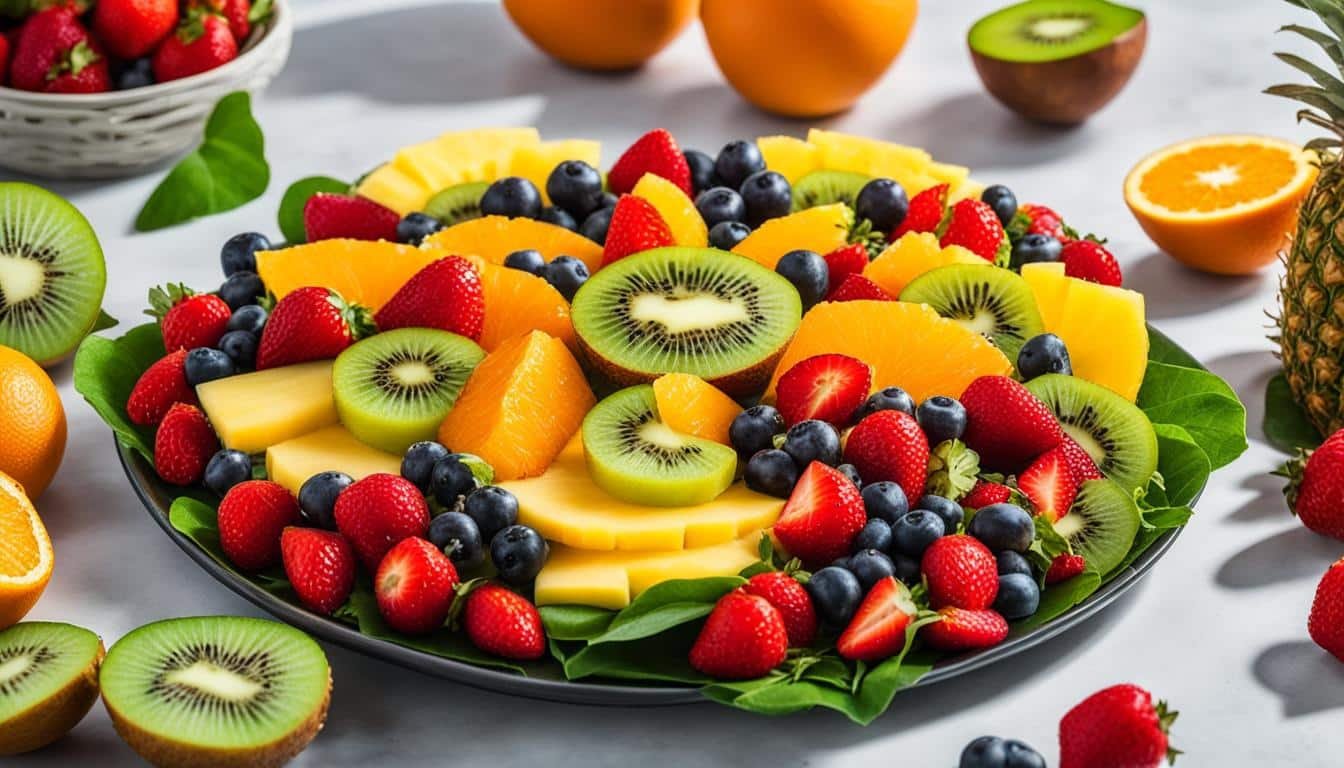Do you ever find yourself anxiously pushing around the food on your plate, afraid to take that first bite? Or maybe the thought of trying new foods fills you with dread and sends your heart racing. If you can relate to these experiences, you’re not alone. Many people struggle with a fear of food that can make mealtimes feel like a battleground.
As someone who has personally battled with a fear of food, I understand the daily challenges and emotional toll it can take. That’s why I’m here to tell you that there is hope. You have the power to conquer your fear and develop a healthy relationship with food.
In this article, we’ll explore tips and strategies for overcoming your fear of food, as well as the support that is available to help you along the way. Whether your fear stems from specific foods, textures, or a general aversion, we’ll provide valuable information to empower you on your journey to food freedom.
Together, we will navigate the complex emotions and challenges that come with a fear of food. You don’t have to face this alone. Let’s take the first step towards a healthier relationship with food together.
Key Takeaways:
- Conquering your fear of food is possible with the right tips and support.
- Understand the root causes of your fear to effectively address it.
- Anxiety around food is common and can be managed with the right strategies.
- Fear of food can impact social interactions, relationships, and physical well-being.
- Gradually facing food fears and seeking professional support are essential steps towards food freedom.
Understanding Food Aversion and Phobia
Food aversion and phobia are terms used to describe the fear of eating and negative reactions towards certain foods. While they are related, these concepts have distinct characteristics that differentiate them from each other.
Food aversion refers to a strong dislike or avoidance of particular foods. It is often influenced by individual preferences, sensory sensitivities, or past negative experiences with specific flavors or textures. Food aversion can manifest as an intense distaste or aversion towards certain foods, leading individuals to avoid them altogether.

On the other hand, food phobia involves an overwhelming and irrational fear of food, leading to anxiety and avoidance behaviors. This fear can stem from various factors, including societal influences, cultural beliefs, or negative associations formed around certain foods. Individuals with food phobia often experience heightened anxiety and distress when faced with the prospect of eating these feared foods.
Understanding the root causes of food aversion and phobia is essential in unraveling the complexities of these fears. It allows individuals to gain insight into their own anxieties and negative beliefs about food, laying the foundation for effective strategies to address and overcome them successfully.
Navigating Anxiety Around Food
Anxiety around food can be a challenging experience, causing distress and impacting one’s relationship with eating. Recognizing and understanding the symptoms of food-related anxiety is an essential step in addressing this issue.
Recognizing the Symptoms of Food-Related Anxiety
When anxiety arises in relation to food, it can manifest in various ways. Some common symptoms of food-related anxiety include:
- Feeling a sense of panic or unease when confronted with certain foods
- Experiencing physical symptoms such as nausea, stomach pain, or sweating
- Having intrusive thoughts or excessive worry about the consequences of eating
- Engaging in avoidance behaviors or restrictive eating patterns
By recognizing these symptoms, individuals can begin to understand that their fear of food may be rooted in anxiety and seek appropriate support and guidance.
The Role of Diet Culture in Food Phobia
Diet culture can significantly contribute to the development and perpetuation of food phobia and anxiety. Society’s emphasis on certain body standards and restrictive eating practices can create a fear of certain foods and an unhealthy relationship with eating.
Messages that promote extreme dieting, labeling foods as “good” or “bad,” and equating self-worth with appearance can increase anxiety around food. Recognizing the influence of diet culture and challenging these unrealistic and harmful beliefs is crucial in overcoming food phobia.
Food Neophobia: When New Foods Cause Concern
Food neophobia is the fear of trying new foods. It can be particularly challenging for individuals with anxiety and food-related fears. Fear of new foods can limit dietary variety and lead to a restricted and unbalanced diet.
To navigate food neophobia, it can be helpful to approach new foods gradually and in a supportive environment. Trying new foods in small increments, practicing mindfulness during meals, and seeking professional guidance can aid in overcoming the fear and expanding food choices.

Having a visually appealing and relevant image can help convey the concept of anxiety around food and enhance the overall understanding of the topic.
Challenges of Living with a Fear of Food
Living with a fear of food can present various challenges. The impact of this fear on social interactions and relationships can be significant. Individuals may find themselves struggling to eat out or participate in social gatherings where food is involved. The fear of food can create anxiety and discomfort, making it difficult to fully engage in these social situations.
In addition to the impact on social interactions, there are physical and emotional manifestations that can arise from a fear of food. Weight loss is a common physical manifestation, as individuals may restrict their intake of certain foods or avoid them altogether. Digestive issues can also occur as a result of fear-induced stress and anxiety. The emotional toll of living with a fear of foods can lead to increased anxiety and a constant state of worry about what and how much to eat.
It is important to distinguish between cibophobia, which is the fear of food, and eating disorders. While these conditions can sometimes coexist or be mistaken for each other, there are distinct differences. Cibophobia specifically revolves around the fear of consuming food, while eating disorders encompass a range of complex psychological and behavioral challenges related to food and body image.

| Challenges of Living with a Fear of Food | Impact on Social Interactions and Relationships | Physical and Emotional Manifestations | Distinguishing Between Cibophobia and Eating Disorders |
|---|---|---|---|
| Struggles with eating out and social gatherings | Weight loss, digestive issues, anxiety | Fear of consuming food vs. complex psychological and behavioral challenges |
Fear of Food: Moving Towards Food Freedom
In the journey towards overcoming the fear of food, it is essential to take gradual steps towards facing your food fears. By building evidence that nothing bad will happen by eating the feared foods, you can gradually move towards a place of food freedom and regain control over your relationship with food.
One important aspect of moving towards food freedom is creating new beliefs about food. Challenge the negative thoughts and beliefs you may have about certain foods and replace them with more positive and neutral beliefs. Remind yourself that food is nourishment and an essential part of a healthy lifestyle.
Developing a neutral relationship with food is crucial. Instead of associating food with fear and anxiety, strive to view it as a source of pleasure and enjoyment. Allow yourself to savor the flavors, textures, and experiences that food can offer.
Challenging and repeating food challenges is another effective strategy. Start by gradually introducing small portions of the feared foods into your meals. Monitor your physical and emotional reactions, and as you continue to expose yourself to these foods, you may find that your fear diminishes over time.
Remember, overcoming the fears of food is a process that requires patience and persistence. Moving towards food freedom is an important step in improving your relationship with food and experiencing a greater sense of well-being.

Overcoming Food Fears with Professional Support
Seeking professional support can be instrumental in overcoming your fear of food. There are various approaches that professionals can utilize to help you navigate and conquer your food phobia. These include cognitive-behavioral therapy, hypnotherapy, and the use of medications to address anxiety.
Utilizing Cognitive Behavioral and Exposure Therapy
Cognitive-behavioral therapy (CBT) is a commonly used approach to treat food phobia. This therapy focuses on challenging and changing negative thought patterns and behaviors associated with the fear of food. With the guidance of a trained therapist, you can learn strategies to gradually expose yourself to feared foods and develop new, positive associations.
Exploring the Efficacy of Hypnotherapy
Hypnotherapy has also shown promise in addressing fear of food. This therapeutic approach involves accessing the subconscious mind to promote positive beliefs and behaviors regarding food. By working with a qualified hypnotherapist, you can explore the underlying causes of your fear and reframe your relationship with food.
Medications as an Aid to Address Anxiety
In some cases, medications may be prescribed by a healthcare professional to aid in managing anxiety related to food. These medications can help reduce the intensity of anxiety symptoms, allowing you to approach food challenges with greater ease. It’s important to consult with a qualified healthcare provider to determine if medications are an appropriate option for your specific situation.
To overcome your fear of foods, consider seeking professional support from therapists experienced in cognitive-behavioral therapy or hypnotherapy, as well as healthcare providers who can guide you in using medications to address anxiety. With their expertise and tailored guidance, you can work towards conquering your fear and developing a healthier relationship with food.
Conclusion
Congratulations on taking the first step towards conquering your fear of food! Throughout this article, we have explored valuable tips and provided support to help you overcome your fear and develop a healthier relationship with food.
Remember, addressing your fear of food is crucial for your overall well-being. By understanding the root causes of your fear, navigating anxiety around food, and recognizing the challenges that may arise, you can begin to make positive changes.
With the right strategies, such as gradually facing your food fears, creating new beliefs about food, and seeking professional support like cognitive-behavioral therapy or hypnotherapy, you can overcome your fear of food and regain control over your eating habits.
It’s important to remember that you are not alone in this journey. Take the support and encouragement from this article and know that with perseverance and the right guidance, you can conquer your fear of food and experience a healthier, more enjoyable relationship with eating. Good luck!
FAQ
What is food aversion?
Food aversion refers to a strong and persistent dislike or avoidance of specific foods. It is often accompanied by feelings of disgust or fear when encountering the aversive foods.
What is food phobia?
Food phobia, also known as cibophobia, is an intense and irrational fear of certain foods or eating in general. It can cause significant distress and anxiety, leading to avoidance of specific foods or food-related situations.
How does anxiety relate to fear of food?
Anxiety around food can contribute to a fear of eating. Symptoms of food-related anxiety may include feelings of panic, rapid heartbeat, nausea, or sweating when faced with certain foods or food-related situations.
What role does diet culture play in perpetuating food phobia?
Diet culture often promotes restrictive eating patterns and moralizes certain foods as “good” or “bad.” This can lead to negative beliefs and anxieties around specific foods, contributing to food phobia.
What is food neophobia?
Food neophobia refers to the fear or reluctance to try new or unfamiliar foods. It can stem from a fear of the unknown or negative experiences with new foods in the past.
How does a fear of food impact social interactions and relationships?
A fear of food can make social interactions challenging, as individuals may struggle with eating out or attending gatherings where food is involved. It can lead to isolation, strained relationships, and feelings of exclusion.
What physical and emotional manifestations can arise from a fear of food?
A fear of food can result in weight loss, nutritional deficiencies, digestive issues, and symptoms of anxiety or depression. It can also contribute to feelings of guilt, shame, and low self-esteem.
How can someone distinguish between cibophobia and eating disorders?
While cibophobia and eating disorders share some similarities, they are distinct conditions. Cibophobia involves a fear of specific foods, whereas eating disorders involve disordered eating behaviors and distorted body image. However, it is possible for both to coexist or for cibophobia to be mistaken for an eating disorder, so professional assessment is important.
How can I overcome my fear of food and develop a healthier relationship with eating?
Overcoming a fear of food requires a gradual and systematic approach. You can start by facing your food fears in a supportive environment and challenging negative beliefs around food. Working with a therapist who specializes in anxiety disorders or food phobia can provide you with effective strategies and guidance.
What professional support options are available for overcoming fear of food?
Cognitive-behavioral therapy (CBT) and exposure therapy are commonly used to address fear of food. Hypnotherapy can also be beneficial. In some cases, medications may be prescribed to manage anxiety symptoms related to food. It is important to consult with a qualified healthcare professional to determine the most appropriate support for your specific needs.










